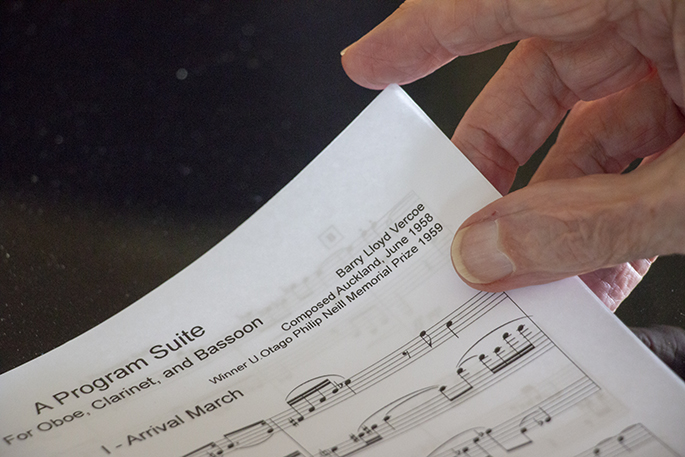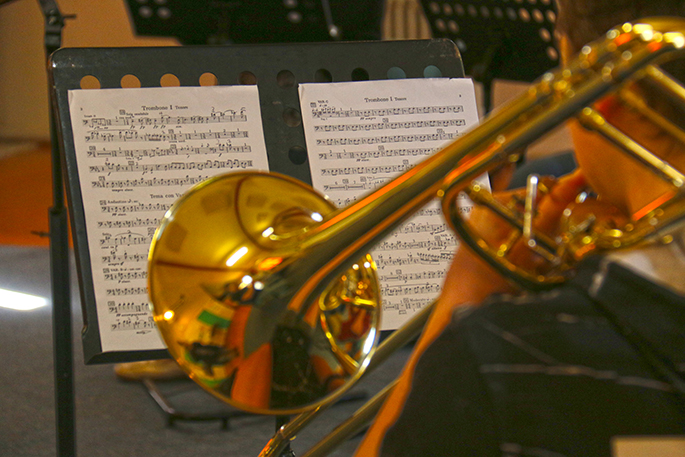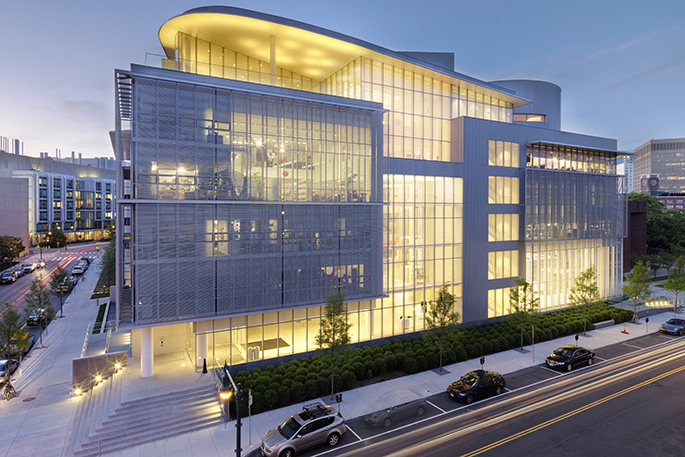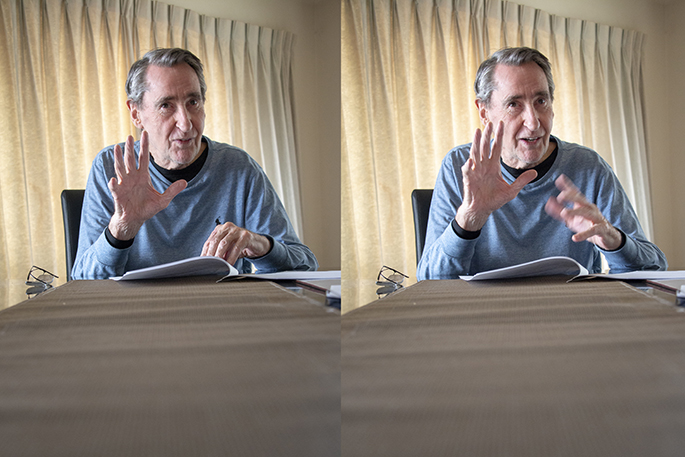While sitting in an Auckland University dorm room, 20-year-old Barry Vercoe wrote a piece of music for some of his musical friends.
Titled ‘A Program Suite for Oboe, Clarinet and Bassoon', it won the University of Otago Philip Neill Memorial Prize in Music.
The really big deal about this, is that it's never been performed in public. That is, until this weekend.
On Sunday afternoon, the world premiere of this award-winning composition will be performed in the Graham Young Youth Theatre at Tauranga Boys' College on Sunday, October 7, at 4pm.
Sixty years after being composed, one has to ask why it has never been performed publicly before now? I suspect it may be that Barry went off to do what appears to be, a very extended ‘OE'.
'I went to the USA in 1962,” says Barry. 'By 1971 I had become a professor at MIT. I then stayed there for 40 years. If you're going to end up in a rut, just make sure it's a good one.”
The good rut he ended up in was as a founding professor of MIT Media Lab in Boston, Massachusetts. He pioneered the composition of works combining computers and live instruments.
In 1983 he developed a Synthetic Performer -- a computer that could listen to other performers and play its own part in musical sync, even learning from rehearsals. He won the 1992 Computer World / Smithsonian Award in Media Arts and Entertainment and the 2004 SEAMUS Lifetime Achievement Award.
This is clearly also a big deal.
Barry pioneered the composition of works combining computers and live instruments. His several Music Synthesis languages are used around the world, and a variant of his Csound and NetSound languages has been adopted as the core of MPEG-4 audio -- an international standard that enables efficient transmission of audio over the Internet.

Until his retirement, he was the head of the Media Lab's Music, Mind and Machine group, which developed technology later incorporated into MPEG-4, the world's first international standard for sound synthesis.
Exploring their website leads you into fascinating topics Barry explored and led innovation on, such as analysing killer whale sounds; developing intelligent music systems where live music events can happen through the Internet when musicians are located remotely from each other; and developing software that enables musicians to synthesize and represent non-Western music in particular from Asia and the Middle-East.
Clearly he's been busy inventing the future. He was able to combine his two degrees in music and mathematics to help establish a new field in computer music.
He also has been a driving force behind a not-for-profit initiative to get a laptop into the hands of every child in remote schools.
In my view, having Barry back here in Tauranga is like having a Beethoven, Bach or Stravinsky living amongst us.
Why did he return? I discovered it was to spend time with an aunt who had helped raise him as a child.
'I came back to Tauranga when she was 98,” he says. 'She died about a year ago, aged 101.”
Sixty years after composing his trio, he's decided to finally stage its world premiere, in the country where it was composed.
The eclectic group of 13 performers comprise musicians from Auckland and Tauranga, playing clarinet, oboe, bassoon, flute, trumpet, horn, trombone and contrabassoon. They include David Adlam, a long-time principal clarinet with the Auckland Philharmonia, Felicity Hanlon on oboe and Gordon Skinner on bassoon, who for many years played principal bassoon with the NZSO.
The Music for Wind Instruments concert is supported by Tauranga Sunrise Rotary, Holland Beckett Law, Legacy Funerals, Pureprint and TECT, and also features works by Stravinsky, Rossini and a 22-year-old Beethoven. There are more details about the pieces being played in a recent story in The Weekend Sun.
Tickets can be purchased online at http://www.tgamusica.co.nz/?/order or at the door.


MIT Media Lab in Boston, Massachusetts



0 comments
Leave a Comment
You must be logged in to make a comment.